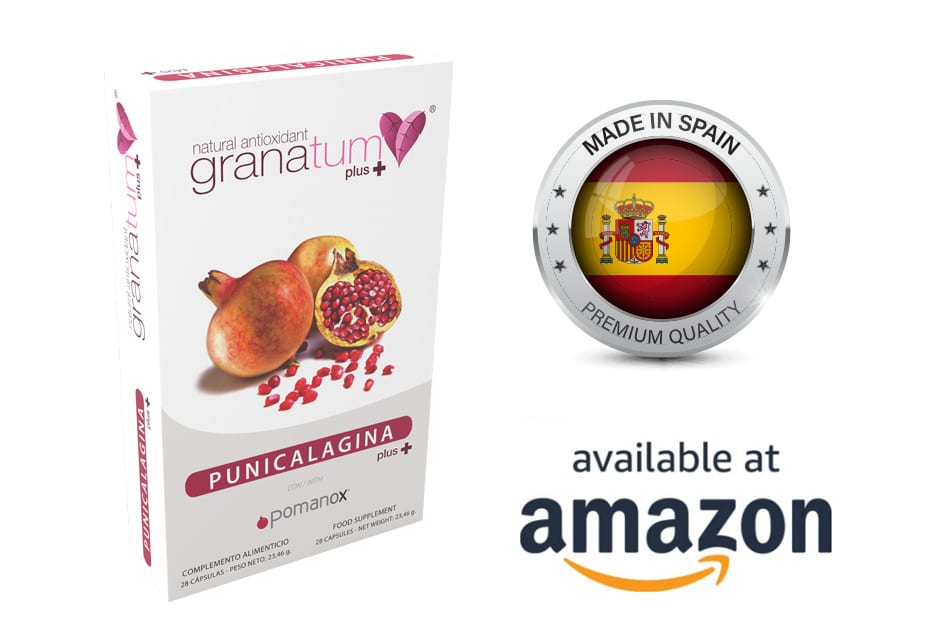
RESEARCH TITLE: In vitro study on anticancer activity of pomegranate fruit extract in lymphocytes of breast cancer patients
WEB TITLE: Anticancer activity of pomegranate fruit extract
COUNTRIES: India
CONDUCTED BY: Department of Zoology, Avinashilingam Institute for Home Science and Higher Education for Women, Tamil Nadu, India
PUBLISHED ON: Journal of Pharmacy Research
RESEARCH:
Objective:
The focal aim of the present study was to investigate the antigenotoxic activities of Pomegranate Fruit Extract (PFE) in human lymphocytes of breast cancer patients in vitro. Methodology:Chromosome aberration (CA) assay were performed. Ten venous blood samples were collected from breast cancer patients who attended the Valavadi Narayanasamy Cancer Centre, G. Kuppusamy Naidu Memorial Hospital, Coimbatore. Four extracts were analyzed for the genotoxicity.
Results: Out of the four, methanol extract was found to reduce chromatid type aberration (CTA) and chromosome type aberration (CSA) (34.31±4.81) followed by chloroform extract (5.3 ±2.02). However, petroleum ether extract showed a minimum inhibition (2.9±1.03) and the percentage of inhibition with respect to water extract was found to be nil. The results indicates gradual decrease in the number of CTA in the experimental samples with methanolic extract (5.75 ± 1.5) when compared to control (8.75±3.59) (p=0.01). Meanwhile, CSA also found to reduce significantly in the experimental sample (3.25±1.5) compared to control samples (5.25±2.06) (p=0.01). When total CA (Chromosome aberration) was taken into account, decrease in the experimental samples (9±2.45) compared to that of control samples (13.25±3.40) was found.
Conclusion: This study emphasizes the possibility of reduction of CA (Chromosome aberration) and thereby reducing carcinogenicity in people who consume pomegranate regularly. Hence the active ingredients of pomegranate fruits can be recommended for drug formulation.
Ten samples were collected from breast cancer patients. Pomegranate Fruit Extract treated blood samples (experimentals) and untreated blood samples (controls) were taken. Table I depicts the characteristics of the experimental and control group of samples, including age of the patients, stage and chromosomal alteration.
Age of the patients ranged from 30 to 70 years. Samples collected with different stages of disease (breast cancer) namely stage I, stage II, stage III and stage IV. The total CA was found to be higher when the stage of cancer increased as shown in table I. The percentage inhibition of chromosomal alteration after the addition of methanol, chloroform, petroleum ether and water extracts of Punica granatum was found to be 0 – 34.31% as shown in table II.
Treatments with methanol extract inhibited CA to 34.31± 4.81 followed by treatment with chloroform extract (5.3±2.02). Treatment with petroleum ether extract showed poor inhibition (2.92±1.03). Treatment with water extract showed no inhibition in the chromosomal alteration.
Of the four treatments, maximum reduction in chromosomal alteration was found in the methanol extract (P=0.05) as shown in table II. However our results indicate reduction in the number of CTA in the experimental samples (5.75±1.5) than in the control samples (8.75±3.59).
The result was found to be statistically significant at p=0.01. Correspondingly CSA was found to reduce significantly in the experimental samples treated with methanolic extract (3.25±1.5) than in control samples (5.25±2.06). Alike CTA and CSA the total CA was found to decrease in the experimental samples (9±2.45) when compared to that of control samples (13.25 ± 3.40) (p=0.01). Thus to conclude, Table III illustrates the reduction in CTA, CSA and total CA in the experimental samples treated with methanolic extract of pomegranate arils
YEAR: 2015
